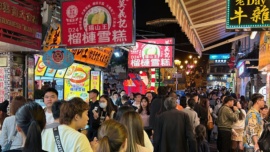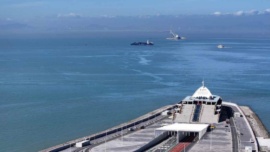Older adolescents in Macau have a stronger sense of hope and have more optimistic expectations of the future when compared with adolescents in Hong Kong.
This is one of the conclusions of a study titled ‘Economic Development and Subjective Well-being: A Comparative Study of Adolescents in Hong Kong and Macau’, which was published last week in the journal ‘Child Indicators Research’.
‘Older adolescents in Macau are associated with a stronger sense of hope, while the opposite holds [true] for those in Hong Kong’, says the study, written by academics Mathew Wong and Wing Hong Chui, from the University of Hong Kong and City University of Hong Kong, respectively.
‘Summarising the results, it can be seen that hope is higher among older adolescents in Macau; the same goes for future expectations. On the other hand, those from Hong Kong have less certainty about the future’, they added.
Among the reasons for the differences between the two regions is the fact that Macau experienced a late boom, fuelling optimism by local adolescents in contrast with the economic moment in Hong Kong.
‘Growing up in an early developer and a mature economy with less perceived social mobility, adolescents in Hong Kong are always under pressure to be competitive in order to survive in the future’, the report notes.
‘On the contrary, Macau’s recent growth leads to an increasing expectation for young people to be able to do well, resulting in the stronger belief in their future, (i.e.) hope and purpose in life’, they posited.
Competitive society
Competition in Hong Kong society has been identified in the research paper as one of the causes for teenagers from the neighbouring region to be less optimistic about their future.
‘As a mature economy, it is high time for leaders and policymakers in Hong Kong to reconsider whether it is still valuable to maintain the rhetoric of economic competitiveness, especially at the expense of wellbeing. Competitiveness, by itself, carries very little intrinsic value’, they assert.
Still regarding the former British colony, the view is that competition is undermining the feeling of the younger generations.
‘This article argues that the constant need to remain competitive comes at great social cost’.
For this study, the academics surveyed a total of 4,591 individuals, of whom 1,830 were from Hong Kong, while the remaining 2,761 interviews were conducted in Macau. All the students were aged between 10 and 22 years.























